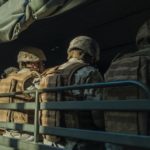
Many military personnel and defense contractors live in the Hampton Roads area. I often represent military members in reckless driving defense cases. Many require a security clearance to keep their job and are concerned about having a clearance either granted or renewed after they are convicted of reckless driving.
An arrest or conviction of a crime does not automatically disqualify a person for a clearance. Candidates are evaluated on the basis of honesty, trustworthiness, reliability, financial responsibility, and loyalty. There are certain categories of individuals who are unqualified to hold a security clearance. These are drug addicts and abusers, mentally incompetent persons, and former military members who have been dishonorably discharged. Otherwise a person is evaluated on the basis of his background and character. Some crimes are more likely to reflect on a candidate poorly when character is evaluated. For example, crimes involving dishonesty such as larceny or embezzlement are problematic.
There are three levels of security clearance: confidential, secret and top secret. Those holding security clearances are required to report to the facility security officer (FSO) any developments that can affect their ability to hold a security clearance. Such persons should investigate how their FSO would view their situation and what information their FSO needs to know and when.
A large percentage of my military clients are trying to avoid a reckless driving conviction because a conviction for reckless driving is a class 1 criminal misdemeanor, which will show up in a background check. Regardless of a military member’s eligibility for a security clearance, a conviction can adversely affect one’s employment opportunities. It could affect one’s ability to get a job as a civilian. Or it can give the military an excuse to reevaluate a military member. The military is an interesting place with its own rules. Article 111 of the Uniform Code of Military Justice states that “Any person subject to this chapter who operates any vehicle while drunk, or in a reckless or wanton manner, or while impaired by a substance described in section 912a(b) of this title (article 112a(b)), shall be punished as a court-martial may direct.”
If you need help fighting a reckless driving ticket or DUI charge, please call me today for a free consultation.